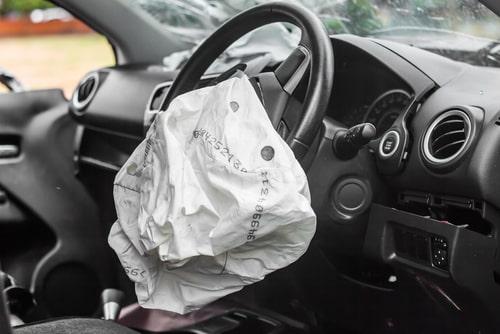121 S. Wilke Road, Suite 301, Arlington Heights, IL 60005
Home and Hospital Visits for Your Convenience
Serving Clients Across 7 Illinois Locations
When Can Defective Auto Parts Cause Car Accidents and Injuries?
 For most Americans, driving is a part of everyday life, and people accept certain types of risks when they are behind the wheel or riding in a vehicle. While the risks of injury in a car accident are present whenever a vehicle is on the road, drivers and passengers expect vehicles to protect them from harm as much as possible. However, many cars and trucks contain defective parts that may affect the safety of drivers and passengers. Those who are injured by auto parts that were designed, manufactured, or installed incorrectly can work with a personal injury attorney to determine who was responsible and pursue compensation for their damages.
For most Americans, driving is a part of everyday life, and people accept certain types of risks when they are behind the wheel or riding in a vehicle. While the risks of injury in a car accident are present whenever a vehicle is on the road, drivers and passengers expect vehicles to protect them from harm as much as possible. However, many cars and trucks contain defective parts that may affect the safety of drivers and passengers. Those who are injured by auto parts that were designed, manufactured, or installed incorrectly can work with a personal injury attorney to determine who was responsible and pursue compensation for their damages.
Common Auto Part Defects
Vehicles contain multiple types of complex parts, and the failure of any one of these systems can cause serious injuries to the vehicle’s occupants. Some auto parts that commonly fail and cause accidents or injuries include:
-
Airbags - These safety systems are meant to deploy in the event of a collision, providing cushioning to help prevent traumatic brain injuries for drivers and passengers. If airbags do not deploy correctly, they may not provide a vehicle’s occupants with the proper protection. Some defective airbags may deploy at the wrong time, or they may explode and cause harm to people in a vehicle.
-
Tires - Blowouts may occur due to manufacturing defects in tires, and in some cases, exploding tires may cause rollover accidents. Tires may also fail if they were installed incorrectly or if they do not provide the proper traction due to design defects.
-
Brakes - The failure of a vehicle’s braking system may affect a driver’s ability to slow down and stop, leading to rear-end accidents or other types of collisions. These accidents may occur because of components such as brake pads that were defective or that were not installed correctly. Defects in automatic braking systems or anti-lock brakes may cause brakes to lock up, leading to dangerous car accidents.
-
Steering - Multiple components in a vehicle’s steering system may fail, causing a driver to lose control of a vehicle -- leading to dangerous collisions.
-
Seat belts - If drivers and passengers do not have the proper restraints, they may suffer serious injuries in a collision. Defective seat belt straps may break, or defective latches may disengage unexpectedly.
-
Seats and headrests - A seat that is not properly anchored may come loose during a collision, causing injuries to a driver or passengers. Some types of headrests, including reactive headrests that are meant to move automatically to protect a person’s head in the event of a collision, may malfunction and cause injuries to a person’s head or neck.
Contact Our Schaumburg Defective Auto Parts Lawyers
At Newland & Newland, LLP, we help car accident victims identify all parties who were responsible for their injuries, including the manufacturers of defective auto parts. We work to ensure that our clients receive financial compensation from all liable parties, allowing them to cover the costs of medical care, lost income, and pain and suffering. Contact our Palatine product liability attorneys at 847-797-8000 to schedule a free consultation and learn how we can help with your case.
Sources:
https://www.nhtsa.gov/sites/nhtsa.gov/files/documents/14218-mvsdefectsandrecalls_041619-v2-tag.pdf
https://www.kbb.com/recall/

 Spanish
Spanish


















